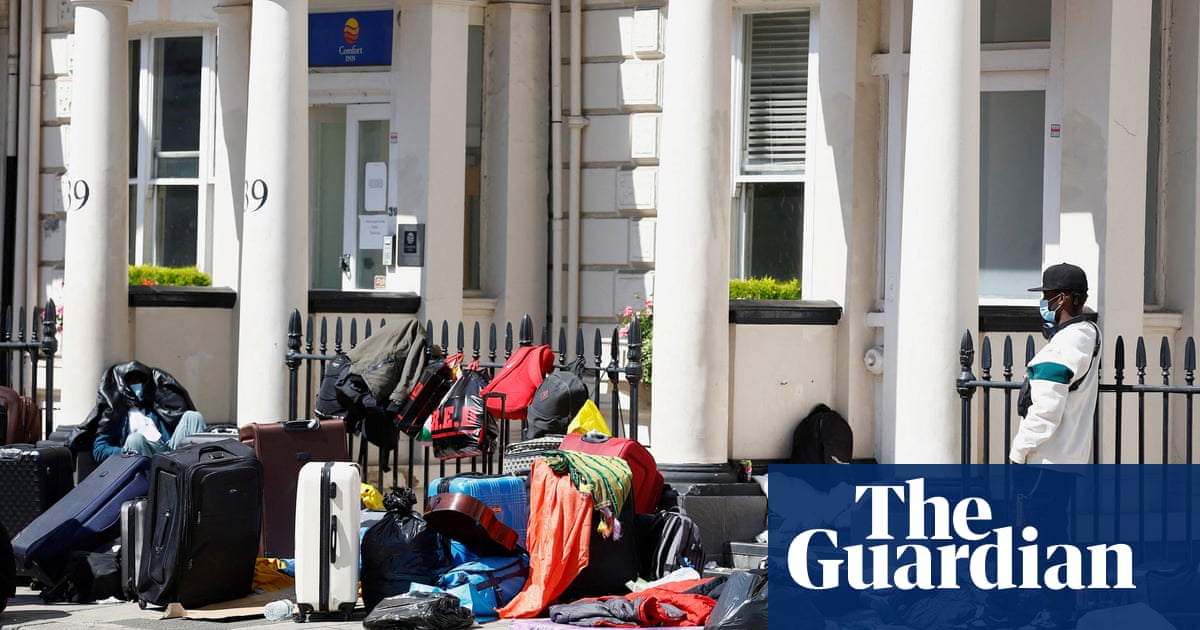
The government is unable to say how many of the children who have come to the UK to seek safety it has placed in temporary hotel accommodation, or give the age of the youngest, because it has not kept a sufficiently accurate count, ministers have admitted.
The Home Office was accused in January of a “dereliction of duty” after it emerged that hundreds of children had gone missing after being placed in hotels, with a whistleblower saying that some had been abducted on the streets outside.
The high court ruled this week that the government’s “routine” housing of unaccompanied child asylum seekers in hotels was unlawful.
The paucity of the government’s record-keeping was revealed by written answers to parliamentary questions posed by the Liberal Democrat peer Paul Scriven.
In one question, he asked how many unaccompanied children seeking asylum had been housed in Home Office temporary hotels in the past 18 months. The Home Office answered: “The data requested cannot be provided as it comes from live operational databases that have not been quality assured.”
In another question, Scriven asked the age of the youngest unaccompanied child seeking asylum who had been housed in a Home Office temporary hotel and for how long. He received the same answer.
Lord Scriven said: “This is a national scandal and beneath us as a country. The Home Office’s careless practice in asylum seeker hotels is totally unacceptable and unlawful, too, as the courts have now confirmed.
“It’s shameful that the Conservatives are falling so far short of their legal obligations and that they’ve let the backlog balloon so much that hotel accommodation is required in the first place. The Home Office has got to do better.”
Fizza Qureshi, the chief executive of the Migrants’ Rights Network, said: “The fact that the Home Office does not have data on the ages of these children or how many are housed in temporary hotels is concerning.
“This raises questions about how the Home Office and local authorities are able to provide adequate safeguarding and care for those it should be protecting.
“Furthermore, it also calls into question how they know if – and where – children are going missing from Home Office accommodation, like in Brighton and Hove earlier this year.”
She said the Home Office’s record-keeping showed a “total disregard” for the safety of unaccompanied children seeking asylum.
“They should be seen as children first and foremost, and not through the lens of their immigration status. We believe that everyone seeking safety should have access to essential services, a welcoming community and a safe home, especially children,” Qureshi said.
The government has come under fire over its treatment of unaccompanied children seeking asylum. On Thursday, Mr Justice Chamberlain ruled that routinely housing them in hotels had become unlawful because the power to place the children there was only intended to “be used on very short periods in true emergency situations”.
Ruling on the high court challenge brought by the charity Every Child Protected Against Trafficking, the judge said: “It cannot be used systematically or routinely in circumstances where it is intended, or functions in practice, as a substitute for local authority care.”
While ministers were unable to give the age of the youngest child placed in a hotel, the Home Office admitted last month that an unaccompanied nine-year-old had been placed in such accommodation due to shortages of local authority care placements.
As of 11 June, the whereabouts of more than 150 children placed in hotels remained unknown. The government has been warned that many are vulnerable to exploitation by criminal gangs.
A Home Office spokesperson said: “The High Court has upheld that local authorities have a statutory duty to care for unaccompanied asylum-seeking children. We have always maintained that the best place for unaccompanied children to be accommodated is within a local authority.
“However, due to the unsustainable rise in illegal Channel crossings, the government has had no option but to accommodate young people in hotels on a temporary basis while placements with local authorities are urgently found.”












